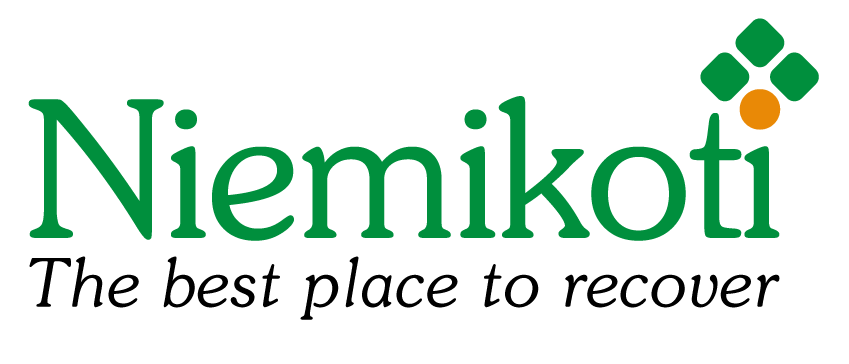
On October 10, 2025, the Niemikotisäätiö Foundation celebrated the tenth class of its expert-by-experience training program at Kesäharju in Iitti. The program’s roots go back to autumn 2015, when preparations began under the mentorship of the Finnish Central Association for Mental Health. Today, the training starts in January and ends with an autumn camp in October – this year marked the graduation of the tenth class, and the group for 2026 has already been interviewed.
The training is free of charge and open to applicants from outside Helsinki as well. The autumn camp is not just a closing event but part of continuous learning: during seminar days and workshops, participants deepen their knowledge and share experiences also with graduates from earlier years.
Over time, the program has developed into a modular structure, with content shaped by feedback and changes in the field.
Learning, Encounters, and Courage
Three themes were repeated in the experiences shared by those who spoke at the celebration: making sense of one’s own life, meeting people, and finding the courage to take part. Susu says she joined the training initially for herself – to process difficult experiences and to be able to support others, especially mothers living with bipolar disorder:
“It would have made things easier if, while I was in the ward, someone with the same experience had come to tell me that you can get through this.”
Pia describes how quitting smoking sparked a desire to help others, and during the training “doors opened in every direction”: even though some of the content was familiar, each training day brought something new. Martin sums up his insight as encouragement for others:
“How do you know it’s not for you if you don’t try?”
The encounters proved to be the most meaningful: dozens of personal stories, each different, yet united by a shared thread of hope. As Susu puts it:
“I don’t know a single ‘normal’ person – only different ones.”
Pia says she gained the most from being able to listen and sometimes offer practical advice. Martin reminds that the training also requires emotional balance: writing one’s own story and hearing others’ can be touching, but the group’s support carries you through. Many emphasized the intertwined paths of mental health and substance abuse work – they often go hand in hand, and that’s why it’s important for the training to cover both.

This year, seven students graduated, and their certificates were handed out in a festive ceremony at the camp. The event began with a surprise performance organized by experience coordinator Sirpa Sinisalo to thank instructor Minna Tikka-Lapveteläinen for her long-term commitment to developing both the training and the entire expert-by-experience program. Participants joined together in singing a congratulatory song – in the photo, Minna is holding the paper reading “Congratulations Song for Minna”, which perfectly captured the warmth and sense of community of the day.
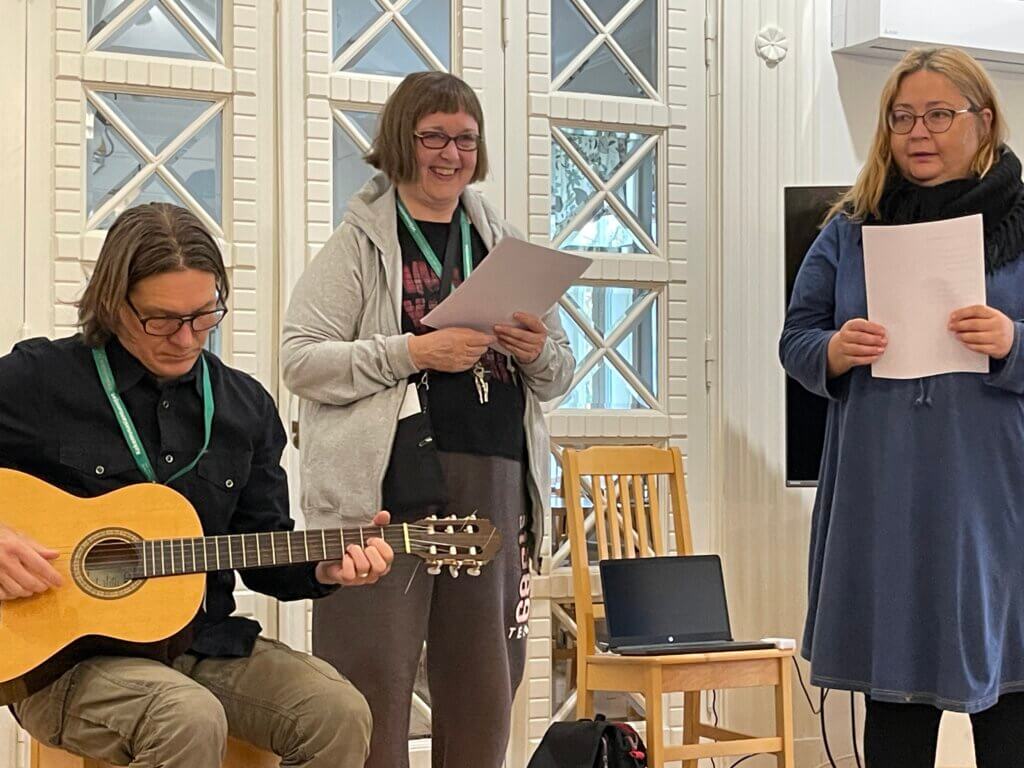
In the surprise performance, a song was sung for Minna. 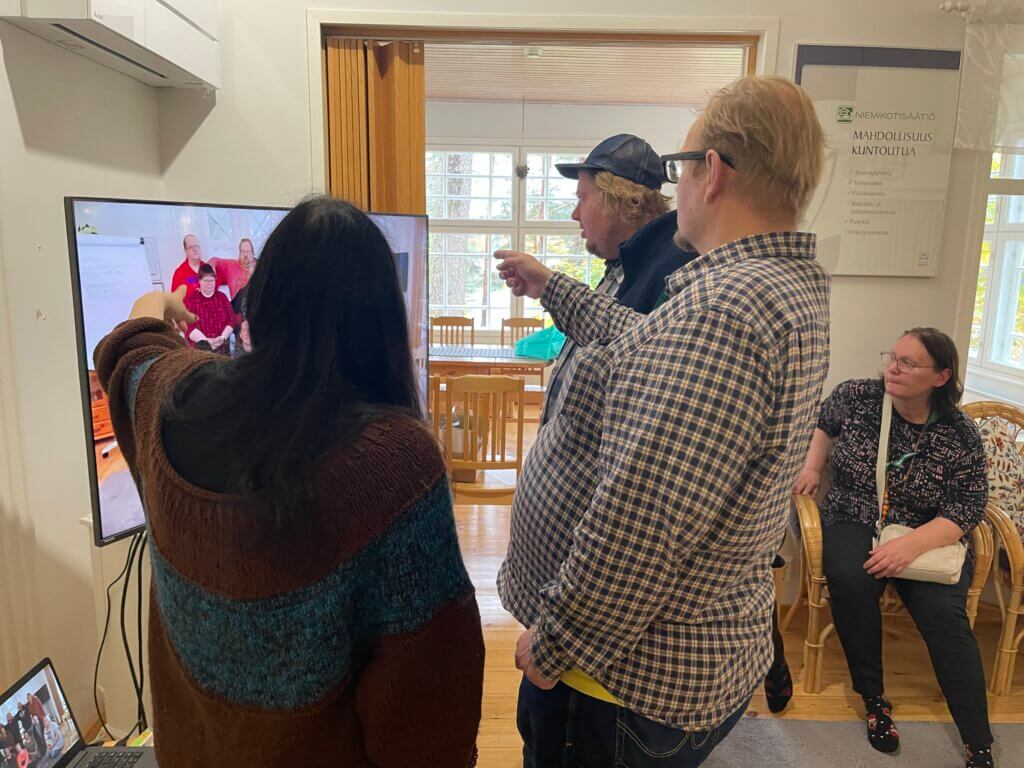
People came to take a closer look at the photos from the retrospective, and familiar faces were always found. 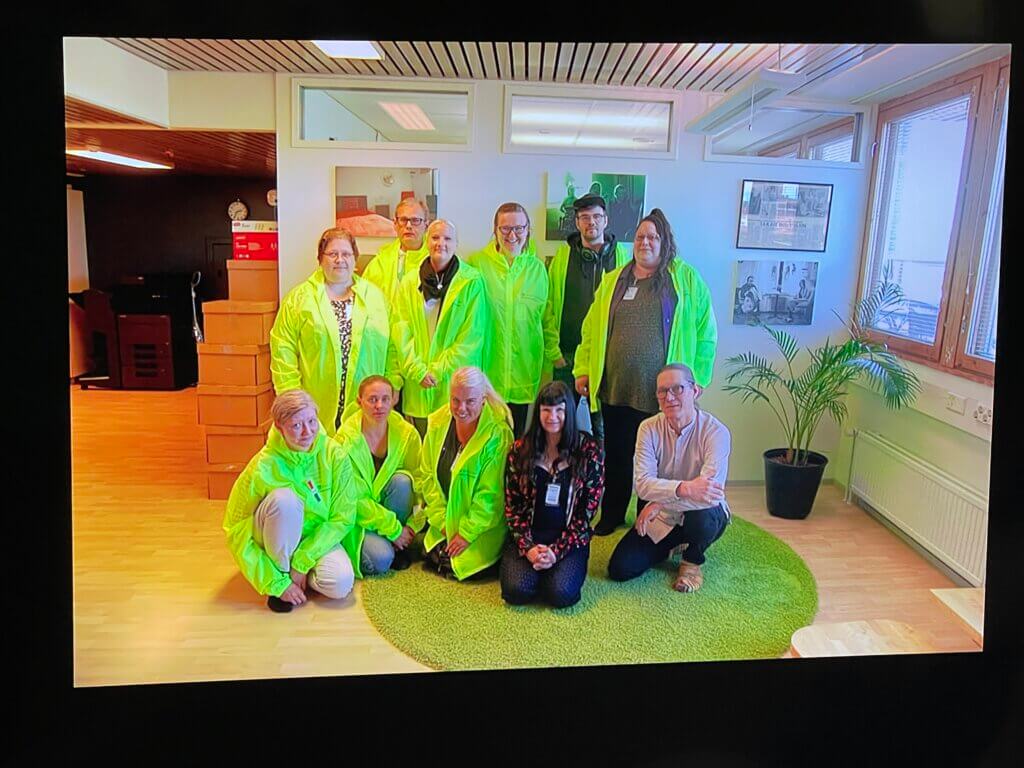
From the retrospective: in one year, the graduates received raincoats. 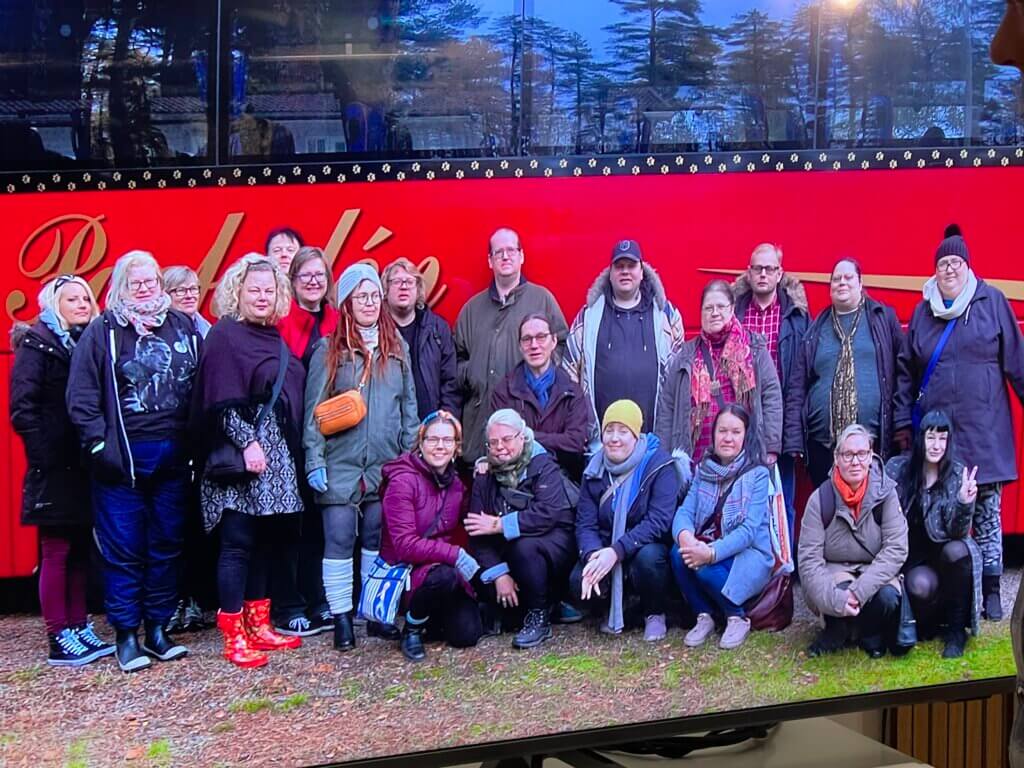
From the retrospective: in earlier years too, the camp group traveled to Iitti by bus.
Graduates of Our Expert-by-Experience Training
- Class of 2016: 8 experts by experience
- Class of 2017: 9 experts by experience
- Class of 2018: 10 experts by experience
- Class of 2019: 8 experts by experience
- Class of 2020: 8 experts by experience
- Class of 2021: 7 experts by experience
- Class of 2022: 10 experts by experience
- Class of 2023: 4 experts by experience
- Class of 2024: 9 experts by experience
- Class of 2025: 7 experts by experience
Facts About the Expert-by-Experience Training
Scope: 54 contact hours (originally 48)
Duration: January–October
Participants: 10 students per year
Cost: The training is free of charge and open also to applicants from outside Helsinki
The training is a process that begins already with the application stage. The goal is to find participants for whom the timing is right – when their own recovery has progressed sufficiently and their resources are in balance. Often, the desire to help others arises early, but at that stage the training might still be too demanding.
The emphasis in the training is on quality, not quantity. The journey is just as important as the destination: even discontinuing the training can be a sign that the process is working as intended.
“Becoming an expert by experience takes time and maturity – and the training demands a lot emotionally.”
— Minna Tikka-Lapveteläinen
